Related Research Articles

The University of Pavia is a university located in Pavia, Lombardy, Italy. There was evidence of teaching as early as 1361, making it one of the oldest universities in the world. It was the sole university in Milan and the greater Lombardy region until the end of the 19th century. In 2022 the university was recognized by the Times Higher Education among the top 10 in Italy and among the 300 best in the world. Currently, it has 18 departments and 9 faculties. It does not have a main campus; its buildings and facilities are scattered around the city, which is in turn called "a city campus." The university caters to more than 20,000 students who come from Italy and all over the world.
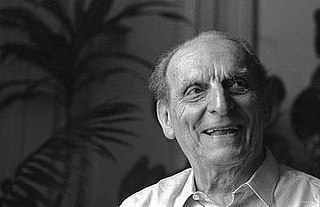
Norberto Bobbio was an Italian philosopher of law and political sciences and a historian of political thought. He also wrote regularly for the Turin-based daily La Stampa. Bobbio was a social liberal in the tradition of Piero Gobetti, Carlo Rosselli, Guido Calogero, and Aldo Capitini. He was also strongly influenced by Hans Kelsen and Vilfredo Pareto.
Daniel A. Dombrowski is an American philosopher and professor emeritus of philosophy at Seattle University. Since 2009 he has served as Editor of the journal Process Studies, and is a past president of the Metaphysical Society of America (2018–19).

Paolo Emilio Taviani was an Italian political leader, economist, and historian of the career of Christopher Columbus. He was a partisan leader in Liguria, a Gold Medal of the Italian resistance movement, then a member of the Consulta and the Constituent Council, later of the Italian Parliament from 1948 until his death. Several times minister in the Republic’s governments. He was author of studies on economics and important works on Christopher Columbus, University professor and journalist.
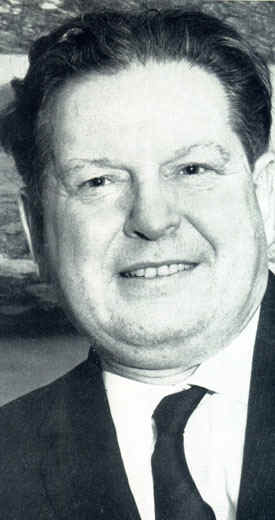
Bruno Leoni was an Italian classical-liberal political philosopher and lawyer. Whilst the war kept Leoni away from teaching, in 1945 he became Full professor of Philosophy of Law. Leoni was also appointed Dean of the Department of Political Sciences at the University of Pavia from 1948 to 1960.

For the former Borromeo College in the United States see Saint Mary Seminary and Graduate School of Theology#Borromeo College

Ryszard Antoni Legutko ; born 24 December 1949) is a Polish philosopher and politician. He is a professor of philosophy at the Jagiellonian University in Kraków, specializing in ancient philosophy and political theory.

Francesco Acri was an Italian philosopher and historian of philosophy.

Domenico Losurdo was an Italian historian, essayist, Marxist philosopher, and communist politician.
Sebastiano Maffettone is a political philosopher and University Professor at LUISS Guido Carli University of Rome, where he teaches Political Philosophy and Theories of Globalization. He has taught in several Italian universities as well as International universities. Maffettone graduated summa cum laude from the University of Naples in 1970, and he completed his graduate studies in social philosophy LSE in 1976, under the supervision of philosophers such as Karl Popper and Amartya K. Sen.
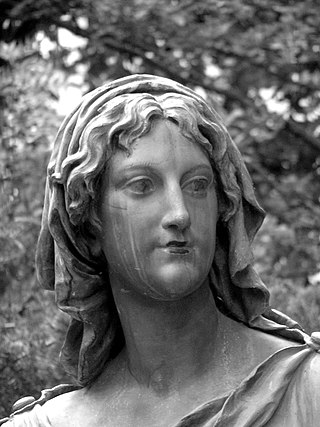
The paradox of tolerance states that if a society's practice of tolerance is inclusive of the intolerant, intolerance will ultimately dominate, eliminating the tolerant and the practice of tolerance with them. Karl Popper describes the paradox as arising from the seemingly self-contradictory idea that, in order to maintain a tolerant society, the society must retain the right to be intolerant of intolerance.

Massimiano Bucchi is an Italian sociologist, writer and a scholar of the relationships among science, technology and society.
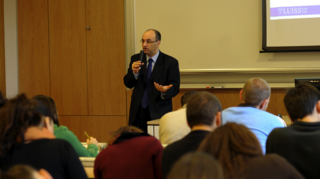
Michele Sorice is an Italian sociologist and political scientist known for his work in the fields of political communication, political science and critical media studies. He is the author of over 25 books and 50 articles.

Mario Vegetti was an Italian historian of philosophy.

Giovanni Reale was an Italian historian of philosophy.
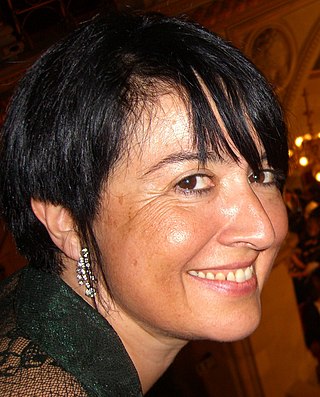
Lorella Cedroni was a political philosopher.

Leopoldo Maggi was an Italian physician, craniologist and naturalist.
Giorgio Vallortigara is an Italian neuroscientist.

Kristin Alexandra Andrews is Professor in the Department of Philosophy at York University and she holds the York Research Chair in Animal Minds.
References
- ↑ https://dafist.unige.it/federico.zuolo@unige.it
- ↑ Zuolo, Federico. CV. Accessed 12 April 2020.
- ↑ Del Bò, C. 2010. "Platone e l’efficacia". Rivista di filosofia110 (2): 311-13. doi : 10.1413/32134.
- ↑ Mandolini, Clara (2009). "Zuolo, Federico, Platone e l’efficacia. Realizzabilità della teoria normativa". Recensioni Filosofiche. Accessed 12 April 2020.
- ↑ Adronadio, Francesco (2010). "Recensão a Federico Zuolo, Platone e l’efficacia. Realizzabilità della teoria normativa". Plato10. doi : 10.14195/2183-4105_10_2
- ↑ Irrera, Elena (2012). "Federico Zuolo (a cura di), Ierone o della Tirannide [Hiero or On Tyranny], Roma, Carocci, 2012". Il Pensiero Politico45 (2): 109-111.
- ↑ Moltchanova, Anna (2016). "Book Review: How Groups Matter: Challenges of Toleration in Pluralistic Societies. Political Studies Review 14 (1): 66-7. doi : 10.1177/1478929915609467e.
- ↑ Blaint, Peter (2016). "Toleration and groups". European Journal of Political Theory 17 (3): 375-84. doi : 10.1177/1474885116661112.
- ↑ Pollo, Simone (2018). "Federico Zuolo Etica e animali". L'Indice dei libri del mese XXXV (9).
- ↑ Schultz-Bergin, Marcus (2021). "Federico Zuolo, Animals, Political Liberalism and Public Reason, (Palgrave Macmillan), 2020". Ethical Theory and Moral Practice . 24 (3): 851–853. doi:10.1007/s10677-021-10191-7. S2CID 236600320.
- ↑ Milburn, Josh (2022). "Review of Federico Zuolo's Animals, Political Liberalism and Public Reason". Between the Species . 25 (1): 119–123.